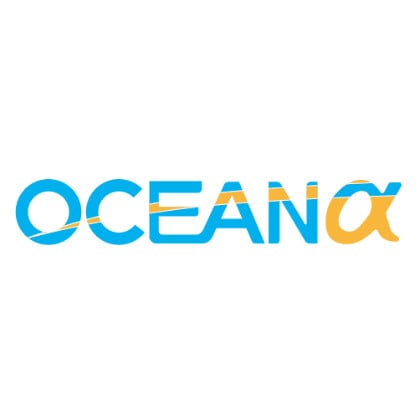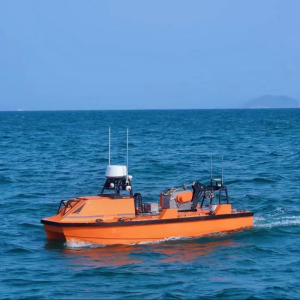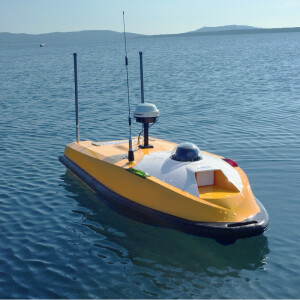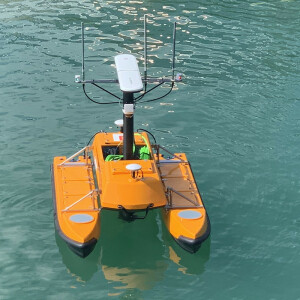
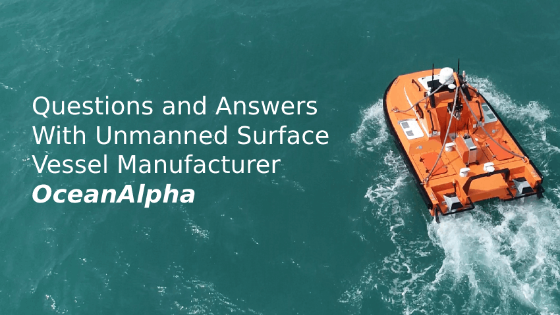
Questions and Answers With Unmanned Surface Vessel Manufacturer OceanAlpha
To support humans in getting closer to the ocean with lower cost, higher efficiency and enhanced safety, OceanAlpha is serving professionals from various fields with integrated USV solutions. We have developed and finalized nearly 30 products with exclusive intellectual property rights owned by the company. These products are redefining the way of data acquisition, life-saving, auto-piloting and swam controlling in the marine sector.
Q1:What sets OceanAlpha apart in the field of unmanned and autonomous surface vessels?
OceanAlpha Group Ltd. is the world's leading commercial unmanned surface Vessel (USV) company. It has grown from a single small office in 2010 to a workforce of over 500+ employees, with more than 214 R&D engineers and 412 pieces of USV-related patents.
Over the past twelve years, OceanAlpha has always insisted on independent research and development. It has mastered core technologies in USV, including Overall System Integration Architecture, Intelligent Autonomous Control, Swarm Control, Hardware Design of Control Unit, Communication Enhancement, and Autonomous Deployment & Recovery. They are recognized as world-leading tech achievements in the industry and have helped the company win many awards in these years.
To support humans get closer to the ocean with lower cost, higher efficiency and enhanced safety, OceanAlpha is serving professionals from various fields with integrated USV solutions. We have developed and finalized nearly 30 products with exclusive intellectual property rights owned by the company. These products are redefining the way of data acquisition, life-saving, auto-piloting and swam controlling in the marine sector.
So far, OceanAlpha's business involves inland & offshore surveying, environmental monitoring, marine engineering, security & rescue, transportation, and recreation. The company is now operating in more than 50 countries worldwide.
We believe that intelligent technologies will reconstruct the connection between humans and water. And OceanAlpha is driving the world toward an intelligent era for the water surface.
Q2:What changes have you witnessed in using and accepting autonomous boats and marine vehicles in recent years?
From a global perspective, autonomous boats and marine vehicles for commercial use are experiencing an unprecedented period of rapid development, mainly manifested in the following three aspects:
First, the development of autonomous boats takes different forms. The rapid developments don't take place in individual countries or individual organizations. Still, they are rolled out almost simultaneously around the world, as the application of unmanned boats is widely recognized worldwide.
Second, its applications are becoming more and more subdivided. In the very beginning, OceanAlpha's unmanned surface vessel (USV) products were used mainly for environmental monitoring in inland rivers and lakes. But by now, our USVs have been applied to more than 20 scenarios, and they can be classified into three types: Inner Water Vessel, Marine Survey Vessel and Maritime Security Vessel. The application of autonomous boats is expected to be constantly extended, and the market will be further fragmented into multiple sectors to suit different industries needs.
Third, the technologies have been updated fast and profoundly. As a company focused on USV R&D, manufacturing and integrated solutions of USV, we embrace the rapid iteration of technologies and are happy to see there have always been new, very cutting-edge technologies to be brought to the world.
Q3:What types of challenges are typically faced by OceanAlpha uncrewed vessel technology users?
Based on OceanAlpha’s close cooperation with clients from different sectors, we understand the common challenges under traditional methods that they are facing during daily operations:
1. Low Efficiency and High Cost
The traditional vessel is expensive and high-cost in operation & maintenance. Also, for a massive survey task, a lot of labor and vehicles are required for on-field operation.
2. Limited Coverage
It is difficult for the traditional manned boat to sail on extremely shallow water, which limits the crew to conduct tasks in specific water areas.
3. Personnel Risk
Personnel could be exposed to safety risks when operating on unknown water or where pipelines/cables leak.
4. Poor Data
For surveying task, man-driven boat is not stable on survey line tracking, which might result in inaccurate or missing data. And it also takes more time for the surveyors to get completed data.
Therefore, OceanAlpha has been working with customers to provide them with innovative USV solutions to solve the problems above. OceanAlpha has developed a portfolio of USVs deployed with advanced sensing, navigation, control, and communication systems and mission payloads that can autonomously navigate and perform tasks on the water.
Compared with the dangerous, inaccurate, and high-cost traditional methods, users who have chosen OceanAlpha USV solution would have benefited from the following improvements brought by the USV application:
1. Improved Efficiency and Saved Expense
Piloted by the autonomous navigation algorithm, the USV can carry out round-clock inspections according to the preset route and conduct pre-programmed multi-purpose surveying missions autonomously. It significantly reduces the crew members' workload and largely saves fuel and employee expenses.
Also, its long endurance enables the crew to complete the geophysical and environmental data acquisition faster. For example, the OceanAlpha M40P Multi-function USV has a single lifetime of up to 24 hours at a survey speed of 4.5kn.
2. Flexibility to Special Environments
The USV's shallow draft and high manoeuvrability on water enable it to work in areas that traditional workboats cannot reach. Furthermore, marine aluminium alloy is used as OceanAlpha's oceanographic USV hull material for its high strength and superior corrosion resistance. Thus, the USV is capable of working in harsh natural environments.
4. Personnel Security
Both the USV and the survey instruments are operated by the base station. Operators can also control the USV manually by using a remote controller. Therefore, the USV can remain working in Sea State 3-4 Conditions without risking the operator's safety.
The USV can sail from the dock or be deployed by a mother ship during operation. The surveyor can complete the marine investigation and position onshore or on board the mother ship.
3. Enhanced Accuracy
The USV can sail along the preset route with a deviation of less than 1 meter for a precise survey. Deployed with radar, HD camera and LiDAR, the USV also gives an excellent performance in collision avoidance.
For some of OceanAlpha's oceanographic surveying USV products, such as the M40P and L25, the catamaran designs significantly reduce swaying and spray foam, providing stable and quiet working conditions for acoustic equipment, which leads to more accurate results.
OceanAlpha's uncrewed vessel technology is expected to empower our clients with tailor-made solutions best fitted to their needs and help solve the difficulties they meet in traditional operations.
Q4:How do you see ASV and USV technology developing in 2023 and beyond?
Based on our analysis of the current development of USV, we notice the three global features as follows:
1) For the application field, the marine survey is the key sector of USV application worldwide.
2) For the application mode, there is a tendency to transform from a single USV operation to a USV fleet operation.
3) The business model has transformed from selling products to providing comprehensive solutions, including products and services.
For one thing, the development of USV in the future will be more and more demand-oriented, and the design will be centred around the functions, missions, purposes, and payloads.
The intelligent USV will grow into an intelligent USV fleet, even a swarm intelligence. This means the swarm can obtain and understand environmental information efficiently and accurately and make decisions autonomously while adjusting its operating parameters according to the dynamic changes of the observation target.
The future of the development of the USV industry is promising. And we are confident that OceanAlpha will be the solid force driving the industry toward the new era.
Do you have questions about this article?
Get in touch with OceanAlpha USV, and they would be happy to answer any questions you have about pricing, suitability, availability, specs, etc.
